Wicked Local Brewster
Posted Dec 5, 2019 at 6:57 PM
APCC: Herring counts show mixed results
An analysis by the Association to Preserve Cape Cod of the 2019 volunteer spring herring counts show the results to be a mixed bag containing both good and bad news.
They indicate that river herring populations on Cape Cod have not recovered and still need protection as well as restoration of their habitat.
The change in herring run sizes from 2018 to 2019 provided some good news. Nine runs had run sizes that increased from 2018 to 2019. They include Stillwater Pond in Chatham, Scargo Lake in Dennis, Coonamessett River in Falmouth, Herring River in Harwich, Quashnet River and Santuit River in Mashpee, Herring River in Wellfleet, Long Pond/Parkers River in Yarmouth and the Marstons Mills River in Barnstable.
The bad news is that eight runs had run sizes that decreased from 2018 to 2019. They include Stony Brook in Brewster, Bound Brook in Dennis, Bridge Pond and Herring Pond in Eastham, Mashpee River in Mashpee, Pilgrim Lake in Orleans, Mill Creek in Sandwich and Tom Mathews Pond in Yarmouth.
Six of these runs are on Cape Cod Bay and two are on Nantucket Sound and Pleasant Bay, suggesting that Cape Cod Bay runs did not fare as well as Nantucket Sound runs.
The longer-term trends in run sizes over several years may be a better indicator of whether a run has increased over time, stayed the same, or decreased over time.
The good news is that some runs have been trending upward in recent years, such as Pilgrim Lake and Stillwater Pond in Chatham.
However, 15 runs saw their highest run sizes in past years. For example, 2012 was the best year for the Marstons Mills River and Santuit River.
For Stony Brook, Herring River in Wellfleet, Tom Mathews Pond, Herring River in Harwich and the Quashnet River, the best year was 2014. For Long Pond/Parkers River and the Coonamessett River, the best year was 2016.
For the Mashpee River, Bound Brook, Bridge Pond, Herring Pond in Eastham, Pilgrim Lake and Mill Creek, the best year was 2018.
On a statewide basis, many herring runs saw their highest numbers in 2014, according to the Massachusetts Division of Marine Fisheries. These results suggest that herring numbers remain low compared to earlier years.
Several Cape Cod runs that used to number in the ten thousand to several tens of thousands range have decreased to very low numbers in recent years and may be in trouble, according to the analysis. These runs now have run sizes of less than 1,000 to 5,000. They include Mill Creek, Tom Mathews Pond, Long Pond/Parkers River and Cedar Lake in Falmouth.
APCC’s assessment of Cape Cod herring run sizes follows a recent announcement of new regulations by the National Oceanic and Atmospheric Administration to promote the recovery of herring populations, including a prohibition on mid-water trawlers from fishing for herring within 20 miles off the east coast of Cape Cod.
River herring, which include alewife and blueback herring, are listed as Species of Special Concern by NOAA and are considered to be critically important in the coastal food web. Since 2005 there has been an ongoing moratorium on river herring catch, sale and possession.
In 2019 volunteer herring counters on Cape Cod counted river herring along 18 herring runs. The counts were conducted by 14 groups and organizations and coordinated by APCC.
Since 2007, APCC has coordinated a Cape-wide volunteer herring count program using a visual count method designed by the Massachusetts Division of Marine Fisheries for volunteer groups. The visual count method provides an estimate of the number of herring migrating during the day.
Volunteer counts provide valuable scientific data on herring populations and are used by fisheries managers to manage and protect herring stocks. Herring counts also help to document the need for restoration of fish runs and the success of restoration projects.
APCC’s partners in promoting volunteer herring counts include the Massachusetts Division of Marine Fisheries, the Massachusetts Bays National Estuary Partnership, NOAA Restoration Center, town herring wardens and organizations and volunteers across the Cape.
For more information, contact Jo Ann Muramoto, APCC’s director of science programs and MassBays regional coordinator for Cape Cod, at 508-619-3185 or jmuramoto@apcc.org. To learn more about APCC’s herring count program and to see herring count results, visit apcc.org/herring.
Wicked Local Brewster – APCC: Herring counts show mixed results
